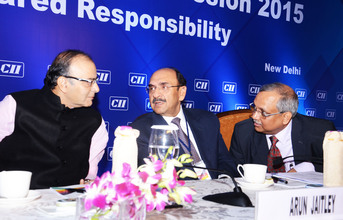
Speaking at the CII National Conference held in New Delhi, Sumanta Chaudhuri, Joint Secretary, Department of Commerce, Ministry of Commerce and Industry said that India's domestic reforms process will need to look at standards up-gradation if India is to effectively engage in Regional Trading Agreements (RTAs) and mega-regionals.
Harsha Vardhana Singh, Former Deputy Director General of the World Trade Organisation and an expert on trade and standards said that mega-regionals such as the US-led Trans-Pacific Partnership (TPP) will increasingly set the rules of the trade game through ever stricter private standards and technical regulations.
Due to the non-inclusivity of the growing mega-RTAs the benefits of trade liberalisation cannot be extended, particularly to the developing countries in Asia, Africa, and Latin America, observed Shishir Priyadarshi, Director, World Trade Organisation. He added that the WTO will continue to fill this space while at the same time work towards addressing the challenges like the implementation of the Trade Facilitation Agreement. The Indian industry will need to look at the evolving trading regime as an opportunity to link up with the global value chains as well as create new south-south value chains given India's duty free tariff preferences to LDC' products.
Introducing the panel, Naushad Forbes, Vice President, CII, said that the Indian industry has been working with the Indian Government in its engagement at the WTO and FTAs and will continue to do so proactively.
End


























